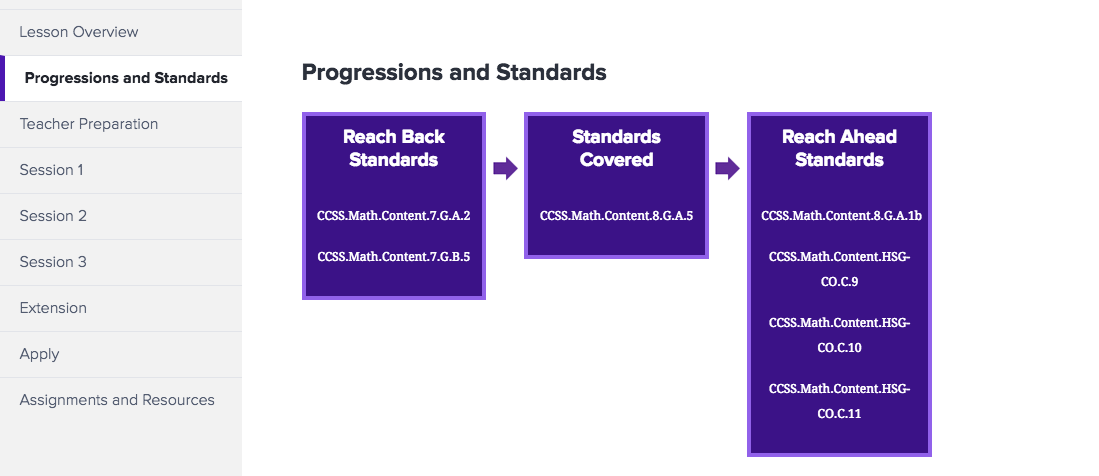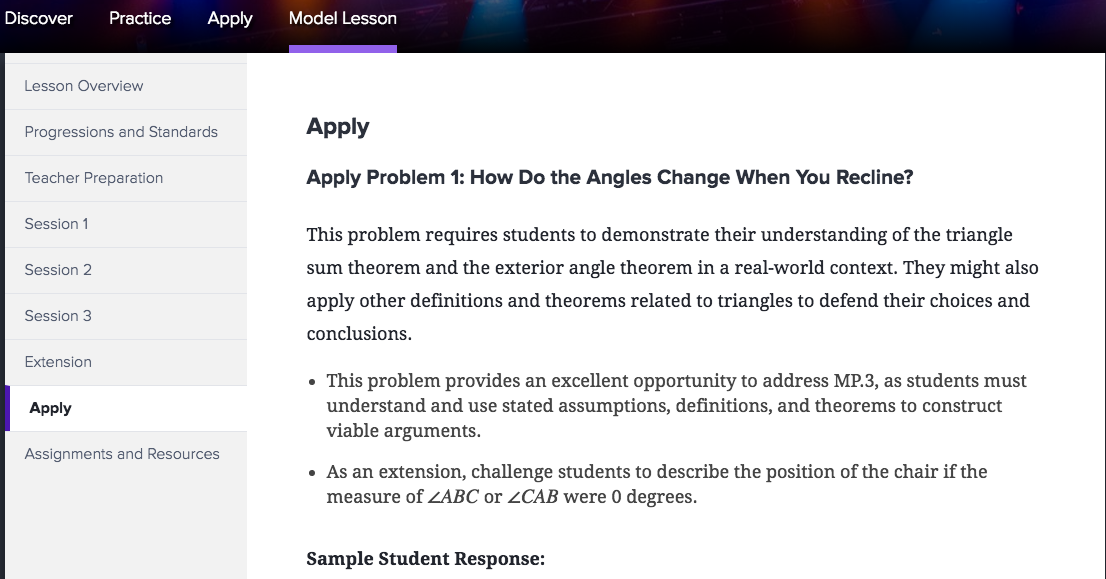Discovery Education Math Techbook Model Lessons provide teacher preparation information, suggested instructional pathways and strategies, and models use of Discovery Education digital resources.
Model Lessons
Each Math Techbook concept includes a model lesson that supports instruction. It provides suggestions for possible questions to ask, suggestions for grouping students, pacing of the lesson, order of instruction, where students might have difficulty, and how to address misconceptions. Access the model lesson from the Model Lesson tab in any concept. Model lessons open to the Progressions and Standards tab and also include sections on Lesson Overview, Teacher Preparation, Session, Extension, and Apply information.
Lesson Overview
In the Lesson Overview section, Lesson Objectives provide key understandings that students will develop throughout the concept. Essential Questions stimulate thought, provoke inquiry, and keep the lesson focused on the big idea. The primary Essential Question is also listed at the top of every screen page within the concept. Enduring Understandings are the compass for teaching throughout the concept, asking: what do you want students to understand after the concept has been taught?
Progressions and Standards
Progressions and Standards provides an at-a-glance view of where a concept fits in the progression of skills. Reach-Back Standards identify prerequisite skills, and Reach-Ahead Standards show where students are headed, either later that year or in subsequent years. Although most Standards for Mathematical Practice are touched on in every concept, three focus practice standards are identified for each unit. Conceptual Understanding, Fluency, and Application learning objectives are delineated, giving transparency to student expectations.

Teacher Preparation
Teacher Preparation tab contains information to help teachers prepare for instruction. Prior to beginning a concept, teachers can prepare necessary materials so that instructional time is more focused. The list of Common Misconceptions identifies typical places of misunderstanding. It also points out errors students are likely to make. Being aware of these ahead of time can assist in instructional planning. Key Vocabulary identifies the terms students will encounter and be expected to use fluently by the end of the concept.
Sessions
Sessions provide an overview of instruction, a list of the Standards for Mathematical Practice that are covered in a particular lesson, tips for classroom management, and instructional notes with details about how to manage an inquiry-based classroom using Math Techbook. Sessions are assumed to last one class period, or approximately 50 minutes. The time guidelines are only approximations, however, and depending on the level of interaction within your classroom, any given lesson may take more or less time than is listed. Suggested discussion questions support students’ exploration, address misconceptions, and give students practice verbalizing what they have learned and using new vocabulary accurately. Formative assessment suggestions are often provided to help identify students who may need more time with a Concept. Off-line options, at-home suggestions, and other alternative approaches are also included in Instructional Notes.
Extension
Extension provides instructional notes for using the Extensions, if you have time and would like additional ideas to extend the concept for the students in a meaningful way.
Apply
Sample student responses for Apply problems are included in the Apply tab, both to provide an example of a correct solution as well as to highlight the key components of an exemplary response.
